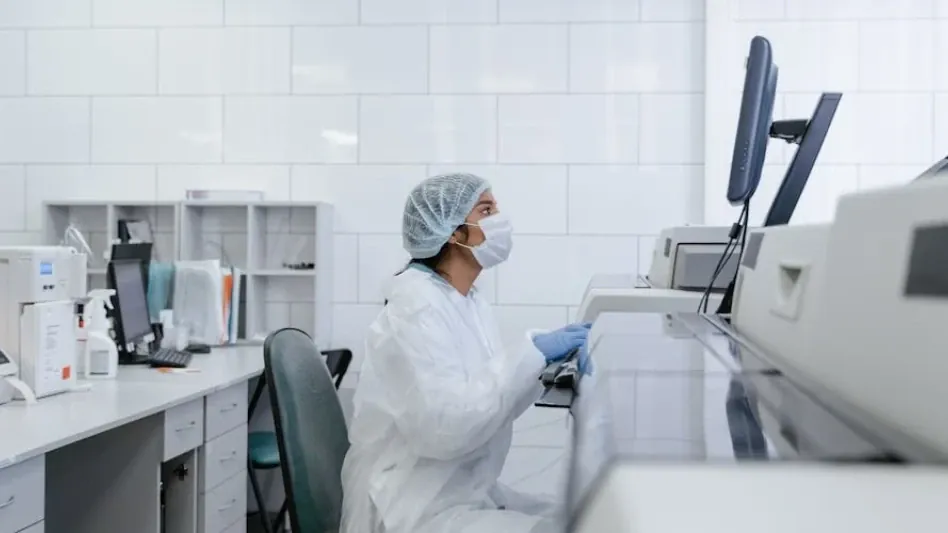The healthcare industry is on the brink of a significant transformation, driven by the integration of advanced cloud services and artificial intelligence (AI). Royal Philips and Amazon Web Services (AWS) have expanded their strategic collaboration to enhance Philips’ HealthSuite cloud services, focusing on integrated diagnostics and generative AI workflows. This partnership aims to leverage AWS’s robust cloud infrastructure to improve diagnostic workflows, access to critical insights, and patient outcomes across various clinical specialties.
Enhanced Cloud-Based Diagnostics
Comprehensive Diagnostic Solutions
Philips is set to offer a comprehensive package of integrated diagnostics, including radiology, digital pathology, cardiology, and AI advanced visualization solutions in the cloud. By utilizing AWS’s cloud capabilities, Philips can unify patient data from diverse diagnostic sources, providing a holistic view of patient health. This integration facilitates seamless collaboration among care teams, ensuring that all relevant information is accessible in one place. Healthcare teams can access a vast array of diagnostic data from various sources, such as imaging, lab results, and patient histories — all aggregated into a unified, cloud-based system.
The integration of these diverse diagnostic modalities into a single ecosystem means that clinicians can make faster and more informed decisions. Radiologists, cardiologists, and pathologists alike benefit from having a complete picture of the patient’s health, allowing for more accurate diagnoses and tailored treatment plans. This comprehensive approach not only expedites the diagnosis process but also improves the consistency and quality of care across the board.
Scalability, Reliability, and Security
The collaboration emphasizes the importance of scalable healthcare informatics solutions, supported by AWS’s industry-leading cloud services. These services provide the reliability and security essential for managing sensitive health information. With AWS’s infrastructure, Philips can ensure that their solutions are not only scalable but also secure, meeting the stringent requirements of the healthcare industry. The scalability offered by AWS enables healthcare providers to adapt to increasing volumes of patient data without compromising performance or security.
In addition, the use of AWS’s cloud platform means that Philips can leverage best-in-class security protocols and compliance certifications. This ensures that patient data remains protected against unauthorized access and breaches, adhering to regulations such as HIPAA in the United States and GDPR in Europe. The collaboration with AWS underscores Philips’ commitment to maintaining the highest standards of data security and privacy, which are paramount in healthcare.
Remote Access and Workflow Optimization
Clinicians benefit significantly from remote access to diagnostic, reporting, and workflow orchestration tools. This remote access enhances diagnostic capabilities from diagnosis to treatment and follow-up, eliminating geographical constraints. By optimizing workflows, healthcare providers can deliver more effective and efficient care, ultimately improving patient outcomes. The remote accessibility of these tools ensures that clinicians can offer continuous care to patients regardless of their location, reducing the need for in-person visits and improving overall accessibility.
Furthermore, remote access to diagnostic tools enables better collaboration among care teams spread across different locations. By facilitating real-time sharing of diagnostic data and findings, clinicians can consult with specialists and colleagues more efficiently. This leads to quicker consensus on treatment plans and more coordinated patient management. Overall, the optimization of diagnostic workflows not only streamlines clinical processes but also enhances the patient experience by reducing wait times and improving the accuracy of diagnoses.
Generative AI Integration
Automating Routine Tasks
Philips is developing robust generative AI applications, integrating state-of-the-art foundation models from AWS’s Amazon Bedrock. These applications aim to automate routine tasks, allowing clinicians to focus on image interpretation, consultations, and critical decision-making. By reducing administrative burdens, generative AI enhances overall efficiency in clinical settings. Tasks such as preliminary image analysis, data entry, and report generation can be streamlined, freeing up valuable time for healthcare professionals to concentrate on patient care.
In addition to automating routine tasks, generative AI can assist in prioritizing urgent cases based on the analysis of diagnostic data. This allows clinicians to address critical situations more promptly, potentially leading to better patient outcomes. The integration of generative AI into healthcare workflows holds the promise of not only increasing efficiency but also enhancing the quality and timeliness of patient care.
Conversational Reporting
An innovative application of generative AI in conversational reporting is being explored. This feature allows clinicians to convert their findings into structured reports using conversational language, which can then be reviewed. By integrating patient histories and clinical context into diagnostic reports, this technology potentially reduces report editing time while maintaining high quality, quickening the diagnostic process and improving care quality. The ability to generate reports through conversational AI can transform how clinicians document their findings, making the process more natural and intuitive.
The use of conversational AI in reporting also promotes consistency and accuracy in documentation. By leveraging natural language processing capabilities, the AI can ensure that all relevant clinical information is captured accurately and comprehensively. This reduces the burden of manual documentation and minimizes the risk of errors or omissions in patient records. Overall, conversational reporting enabled by generative AI represents a significant advancement in medical documentation, enhancing both efficiency and quality.
Impact on Clinical Workflows
The integration of generative AI in healthcare diagnostics is anticipated to significantly transform clinical workflows. By automating routine tasks and improving reporting efficiency, healthcare providers can contribute more effectively to patient care. Early estimates project that these innovations can improve efficiency by 15 to 20 percent, allowing medical professionals to focus more on patient interactions and critical decision-making. This improved efficiency translates to shorter turnaround times for diagnostic results and quicker initiation of treatment plans.
In addition to improving efficiency, the integration of generative AI can enhance the accuracy and reliability of diagnostic processes. By providing automated support for tasks such as image analysis and data interpretation, AI can assist clinicians in identifying subtle abnormalities that might be missed during manual review. This can lead to earlier detection of conditions and more accurate diagnoses, ultimately benefiting patient outcomes. The impact of generative AI on clinical workflows is poised to be profound, driving improvements in both the operational and clinical aspects of healthcare delivery.
Broader Trends in Cloud Healthcare Solutions
Innovation in Cloud Services
There is a clear movement towards the integration of cloud services in healthcare to offer scalable, secure, and efficient solutions. AWS’s cloud capabilities are crucial in driving this innovation, enabling providers to furnish better care with more accessible tools. The collaboration between Philips and AWS exemplifies this trend, showcasing the potential of cloud-based healthcare solutions. The transition to cloud computing allows healthcare organizations to benefit from the flexibility and cost-efficiency of scalable infrastructure while maintaining high standards of data security and compliance.
Furthermore, the adoption of cloud services in healthcare supports the development and deployment of advanced technologies such as AI and machine learning. By leveraging cloud platforms, healthcare providers can access powerful computing resources and sophisticated analytics tools that were previously inaccessible or cost-prohibitive. This empowers them to harness the full potential of data-driven insights and innovations, ultimately improving patient care and operational efficiency.
Impact on Patient Care
Collectively, these advancements are expected to elevate the quality of patient care by ensuring quicker and more precise diagnostics. By integrating diverse diagnostic data sources into one unified system, healthcare providers can enhance collaboration among care teams and optimize patient management. This directly contributes to improved patient outcomes, demonstrating the significant potential of cloud and AI technologies in healthcare. The ability to consolidate and analyze vast amounts of patient data allows for more personalized and evidence-based treatment approaches, leading to better health outcomes.
In addition, the use of cloud-based solutions can improve patient engagement and satisfaction by enabling more efficient and transparent communication between patients and healthcare providers. Patients can access their health information, track their progress, and communicate with their care teams through secure online portals. This level of engagement not only empowers patients to take an active role in their care but also fosters a more collaborative and patient-centered healthcare environment.
Practical Applications and Benefits
Philips’ booth at the Radiological Society of North America Annual Meeting will showcase these advancements, demonstrating the practical applications and benefits of their cloud and AI-based solutions in clinical settings. This aligns with Philips’ broader mission to innovate and improve healthcare delivery across various specialties through the strategic use of technology and clinical insights. The demonstrations will highlight how these technologies can be seamlessly integrated into existing clinical workflows, enhancing efficiency and quality of care.
By showcasing real-world applications of their cloud and AI solutions, Philips aims to illustrate the tangible benefits that these innovations can bring to healthcare providers and patients alike. These benefits include streamlined diagnostic processes, improved collaboration among care teams, and enhanced patient outcomes. The practical applications of these technologies underscore the transformative potential of cloud and AI in reshaping the future of healthcare.
Future of Healthcare Innovation
Expanding Collaboration
Philips and AWS have already transitioned over 150 sites across North America and Latin America to Philips HealthSuite Imaging on AWS, with plans to extend this migration to Europe. This indicates the effectiveness of their collaboration and the scalability of their solutions. By leveraging AWS’s cloud and AI capabilities, Philips plans to advance their healthcare informatics solutions to offer better-coordinated, more efficient care. The ongoing collaboration between Philips and AWS serves as a testament to the success of integrating cloud and AI technologies in healthcare.
The expansion to Europe and beyond signifies the global applicability and impact of these innovations. As more healthcare organizations adopt cloud-based solutions, the benefits of streamlined workflows, improved diagnostic accuracy, and enhanced patient outcomes will become increasingly evident. The partnership between Philips and AWS positions them at the forefront of this global shift towards technologically advanced healthcare solutions.
Setting a Precedent
The healthcare sector is on the verge of a major transformation through the integration of advanced cloud services and artificial intelligence (AI). Royal Philips and Amazon Web Services (AWS) are broadening their strategic collaboration to enhance the capabilities of Philips’ HealthSuite cloud services. Their focus is on improving integrated diagnostics and incorporating generative AI workflows. This strengthened partnership leverages AWS’s formidable cloud infrastructure to streamline diagnostic workflows, providing rapid access to crucial insights and ultimately enhancing patient outcomes across diverse clinical specialties. By integrating these advanced technologies, the aim is to create more efficient healthcare processes, from diagnosis to treatment, benefiting both healthcare professionals and patients. Such advancements in cloud services and AI are expected to revolutionize the management of patient care, ensuring more accurate and timely medical interventions across the board. This collaborative effort signifies a pivotal move towards more innovative, tech-driven healthcare solutions.









